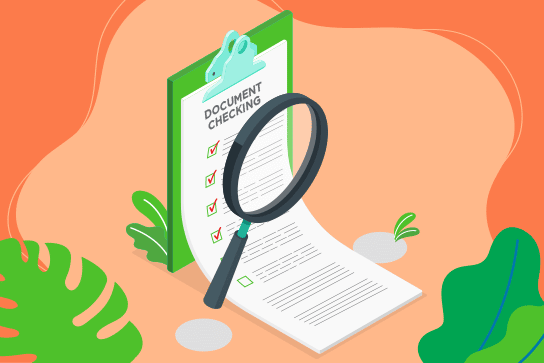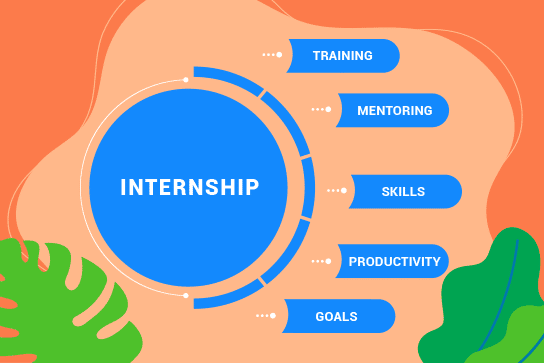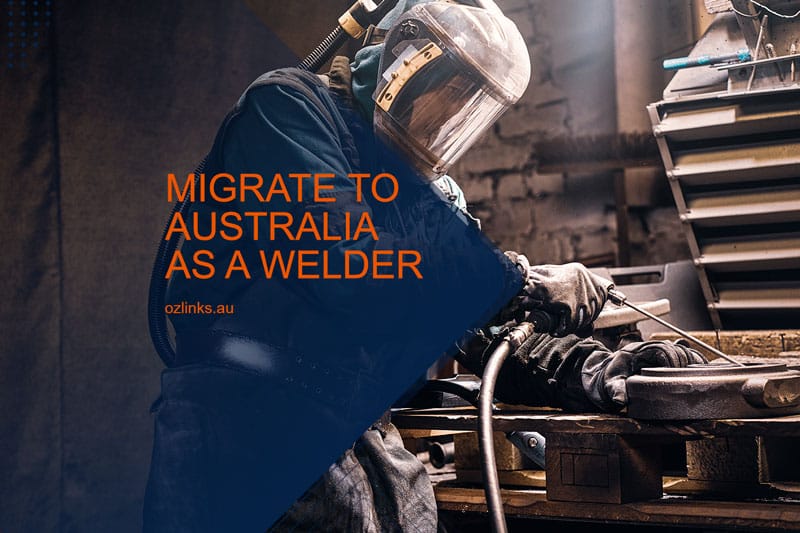LISTEN AUDIO
Last Updated on April 3, 2025 by Ozlinks Education
Welding as a job can be rewarding, attracting competent workers who prefer hands-on work. Welders are needed for activities that require the joining of dissimilar materials, such as metals and thermoplastics. Welders use extreme heat to fuse the materials they work with in order to make strong and long-lasting bindings. Because you are a welder, you are aware with the most efficient methods for dealing with a wide range of materials, as well as the quickest and most efficient methods for producing trustworthy and secure joins.
In addition, you must be educated about the safety procedures and tools required to make working in high temperatures safe for both you and people around you. You become an expert in a wide range of techniques and work with engineers and other qualified specialists to create final products.
How do I migrate to Australia as a welder?
Australia has always been a popular destination for skilled welders seeking to advance their careers and establish themselves in a diverse society. Australia has seen an increase in need for skilled welders and fabricators to contribute to the country’s diverse construction and manufacturing industries in recent years.
To relocate to Australia to work and build a permanent home, qualified welders and fabricators need to know how many different visas are available, which can serve as a stepping stone to permanent residency (PR). Ozlinks Education will discuss the procedures and steps needed to obtain permanent residency (PR) in this article.
Are welders in high demand in Australia?
The number of welders employed in Australia has increased because to rising demand in manufacturing and construction. Welders can find work in the following industries in Australia:
- Mining
- Oil and Gas
- Power Stations, Petro Chemical
- Construction
- Manufacturing
According to the National Skills Commission’s (NSC) 2023 Skills Priority List report, welders are classified as a shortage across Australia’s states and territories, as illustrated in the table below:
Explanation: Shortages (S): Shortages exist when employers are unable to fill job vacancies
How many different types of welders are there in Australia?
There is a pressure welder and a welder (first class) in Unit Group 3223, Structural Steel and Welding Trades Workers.
Pressure Welder
According to ANZSCO: 322312, a pressure welder assembles, welds, and repairs pressure pipes and vessels to relevant standards.
Welder (First Class)
According to ANZSCO: 322313, a welder (first class) fabricates and repairs metal products using various welding techniques.
Specialisation: Special Class Welder
ANZSCO Skill Level
Welders (first class) and pressure welders both need to have at least ANZSCO Skill Level 3, which is equivalent to an Australian Qualifications Framework (AQF) Certificate III in Engineering.
To understand more about the AQF level, visit AQF level page.
What types of visas are available for welders?
The occupation of welder is currently on the Medium and Long-term Strategic Skills List (MLTSSL). Weldering is a very popular occupation that provides access to a variety of visas that may lead to permanent residency. If you are a skilled welder, the following visas may be available to you:
- Temporary Skilled Shortage (TSS) Subclass 482
- Employer Nomination Scheme Subclass 186
- Skilled Employer Sponsored Regional Visa 494
- Skilled Work Regional Subclass 491
- Skilled Nominated Subclass 190
- Skilled Independent Subclass 189
Check out our visa points calculator to see if you are eligible for a skilled visa. If you need help deciding what to do next, our migration experts are here to help.
Does the welder need to do a skills assessment?
The answer is yes. A skills assessment is a mandatory requirement for a pressure welder and welder first class. That is, you cannot apply for any of the above visas without a skills assessment. After completing your skills assessment with a positive outcome, you will be awarded a Certificate III in Engineering (Fabrication Trade) and a letter for visa application purposes. The Certificate III in Engineering will serve as your new Australian qualification as a welder.
Your skills assessment result is valid for three years from the day it was issued. This means that you must apply for a visa within the next three years.
However, there is no expiration date on your Australian Certificate III in Engineering (Fabrication Trade). It is important to maintain your qualification and the outcome letter, as you will need them to apply for welding positions in Australia.
Visit this page to learn more about our migration skill assessments services.
Can a welder apply for permanent residency in Australia?
The jobs of pressure welder and welder (first class) are on the Medium and Long-Term Strategic Skills List (MLTSSL). That is, welders who work for a qualified sponsor may be eligible for a path to permanent residency through the Employer Nomination Scheme (ENS) visa (subclass 186).
Pressure welder and welder (first class) are occupations on the Medium and Long-Term Strategic Skills List (MLTSSL). Welders who work for an approved sponsor, may be eligible for permanent residency via the Employer Nomination Scheme (ENS) visa (subclass 186).
Welders can potentially gain permanent residency through a skilled visa. Checkout to see if you are eligible for a skilled visa.
What does a welder do?
Structural steel and welding trades workers cut, shape, join, and repair metal components of iron and steel structures, boilers, pressure vessels and pipes, ships, and other vessels.
Their job involves:
- studying blueprints, drawings, and specifications to determine job requirements.
- selecting, cleaning, and preparing metal stock.
- cutting marked-out metal sections and shapes using hand tools, flame cutting torches and metal cutting machines.
- shaping and bending metal sections and pipes using hand and machine tools, and by heating and hammering.
- aligning parts to be joined using hand tools and measuring instruments.
- joining metal sections using various welding techniques, bolting and riveting.
- examining welds for width of bead, penetration and precision.
- finishing products by cleaning, polishing, filing and bathing in acidic solutions.
- cleaning and smoothing welds by filing, chiselling and grinding.
How do I find a job as a welder in Australia?
If you are a highly skilled welder with more than 5 years of experience looking for a sponsor job in Australia, we have employers who are looking for skilled migrants and are prepared to sponsor you to work as a welder. Visit the job placement page to fill out an application online.
Does a welder need a white card?
A white card is required if you work as a welder in the assembly, welding, and maintenance of pressure pipes and vessels in the mining, oil and gas, power plants, petrochemical, and construction industries. According to the National Code of Practise for Induction for Construction Work, those who require a white card include:
- Tradespeople
- Construction workers
- Site managers
- Supervisors
- Surveyors
- People who access operational construction zones.
- Workers who routinely enter operational construction zones
White Card is commonly known as ‘Prepare to Work Safely in the Construction Industry’. If you have a valid White Card, it indicates that you have completed official, certified general construction induction training with a registered organisation within Australia.
This course will teach you the fundamental skills and information required to operate safely on a construction site and to protect yourself and others from accident or harm.
Learn to correctly fit yourself with protective equipment, identify and report hazards, understand risk, and respond to potential incidents and emergencies.
Why do I need help with skill assessment?
Each assessing authority has its own set of skill assessment criteria, procedures, and timelines. The criterion is carried out by an assessing authority and pertains to your chosen ANZSCO occupational from the Skilled Occupation List (SOL), which will be assessed by the assessing authority in compliance with relevant professional standards.
Ozlinks Education is an agency that assists individual applicants in understanding the skill assessment requirements. We will be able to establish the right assessing authority and its requirements according to your chosen ANZSCO profession. Our document checking experience assures that you have met the paperwork requirements for the skills assessment application criterion. This approach will allow us to present your application for the best possible outcome.
Skills Assessment AssistanceDisclaimer:
This section does not intend to provide immigration assistance pursuant to section 276 of Migration Act (Cth) 1994 as described in the Migration laws. It is based on public guidelines available at Department of Home Affairs’ Website. It is your responsibility to verify accuracy and status of provided information with your Registered Migration Agent (RMA) who is bound by the MARA code of conduct before submitting any visa applications.
Although every effort has been made to provide complete and accurate information, Ozlinks Education and Career Services makes no warranties, express or implied, or representations as to the accuracy of content under ANZSCO Occupations sections.





